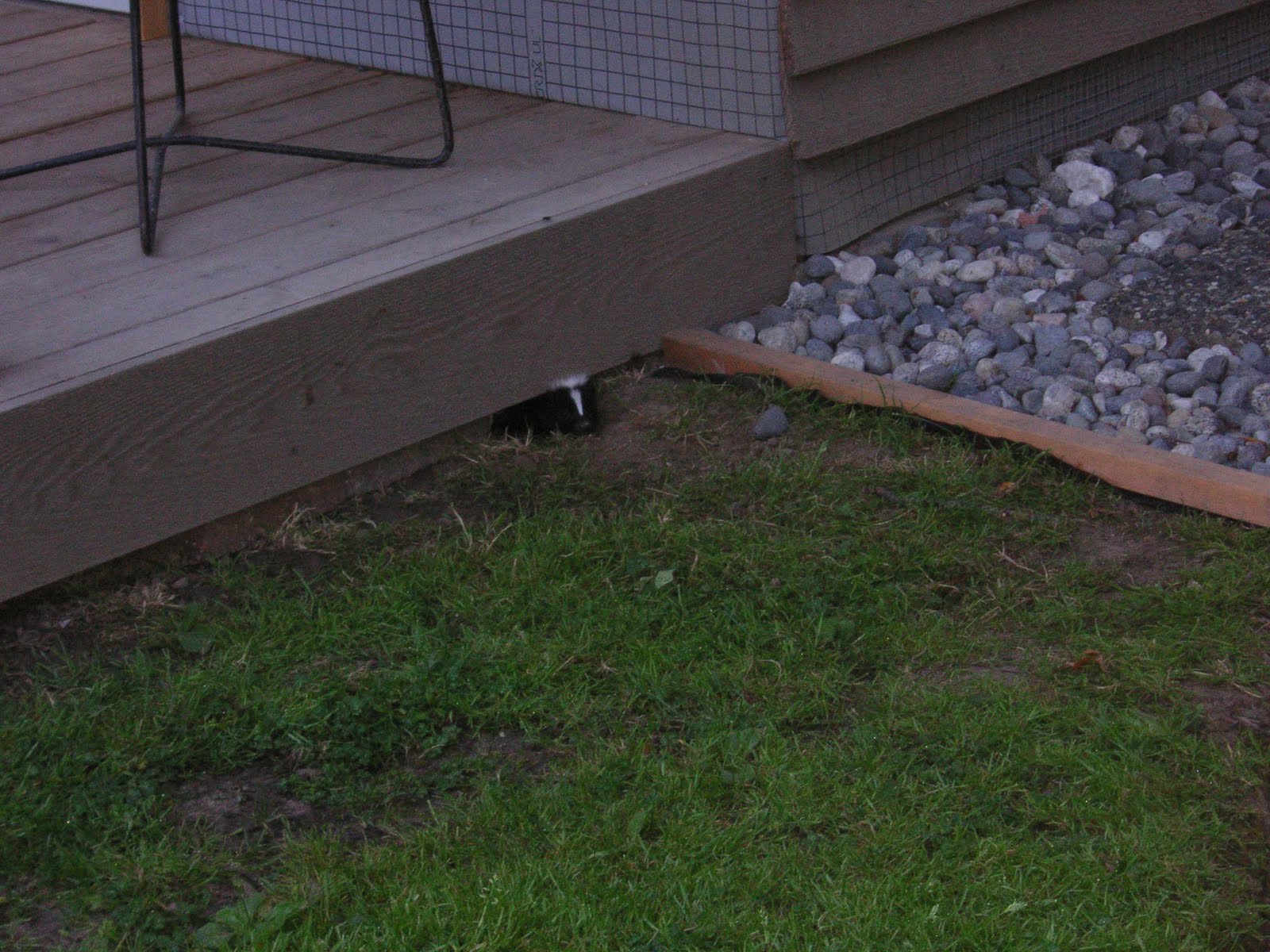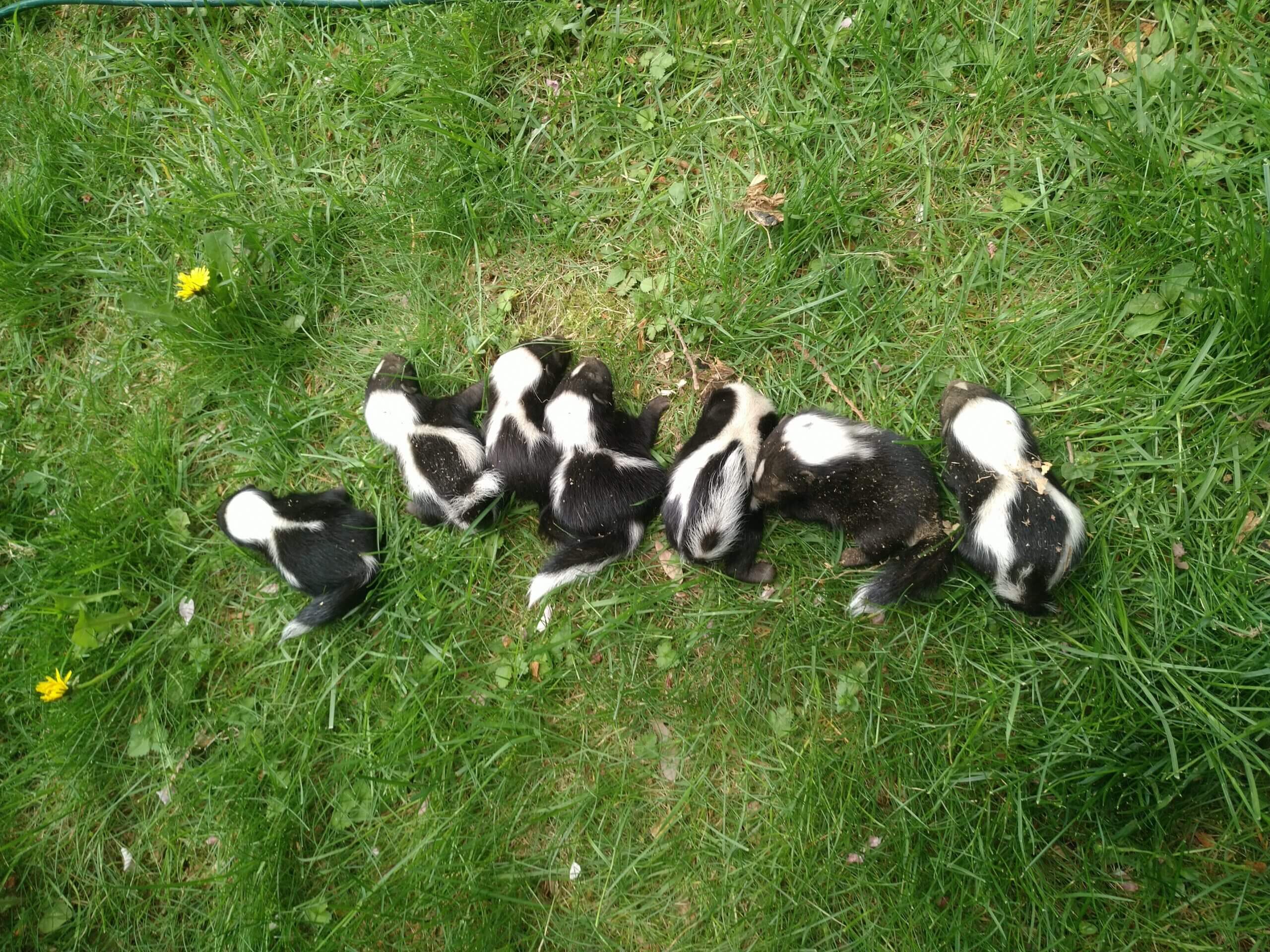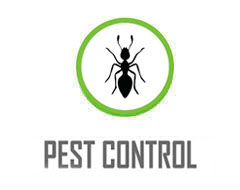
Why are Skunks on my Property?
If you’re trying to get rid of skunks that are wreaking havoc across your property, there are several different strategies you can try. But, it is very important to put in the time and effort to research and understand your furry enemy before rolling up your sleeves and trying to get the job done. For example, females are slightly smaller than the males and their bodies are covered in thick, black and white patterned fur. Due to their poor eyesight, adult skunks rarely survive longer than 3 years in the wild. Understanding skunks can be done in various ways, but typically includes learning about the following:
- Feeding habits
- Mating behaviour
- Defensive behaviour and predators
- Seasonal behaviour
FEEDING HABITS
Skunk’s diet can change from one season to another, as they sleep during the day and only go out to forage for food after dark. Their diet can include berries and nuts, leaves, roots, grass, moles, eggs, birds, bees, snakes, frogs, lizards, insects and small rodents. But, don’t be surprised to see them going after pet food and even garbage.
Unfortunately, our homes offer a plethora of food for skunks to choose from. Not only do our gardens offer a variety of vegetation, but our yards contain grubs that skunks love to dig for. You should also not be surprised if you see these little guys rummaging through your garbage or eating leftover pet food. Once winter arrives and food supplies are short, skunks will dig into the ground to find food, and go into torpor (a deep sleep state) to reserve their precious energy.
MATING BEHAVIOURS
Over the course of its life, a male skunk will mate with several females. The male also separates from the female after mating and their breeding season stretches between February and March. A pregnant female skunk gives birth to a litter of four to eight baby skunks following a gestation period that lasts just over two months. During the first six weeks of their lives, the young completely depend on their mother as they are hairless, deaf and blind. When they reach one year, they separate from their mother and move on to survive independently. Skunks are typically born between May and July.

DEFENSIVE BEHAVIOUR & PREDATORS
Skunks can easily detect the presence of predators like badgers, wolves, foxes, great horned owls and dogs as they are very sensitive to sounds and smells. Skunks prefer to make a quiet getaway from danger if possible. If trapped or chased, they will give off a warning signal by turning and arching their back, raising their tail high, stomping their feet and making a hissing noise. If this doesn’t dissuade the predator, the skunk will spray them with a yellowish, oily fluid from its anal scent glands in self-defense.
NOCTURNAL BEHAVIOUR
Skunks are nocturnal creatures, meaning they are mainly active at night. However if you see a skunk out during the day, there is no need for alarm, they may be searching for food or moving to one of their several den sites in the area. During the evenings, skunks emerge from their den sites and search for food. With only a spray to defend themselves, skunks are vulnerable creatures. The dark of night, mixed with their dark fur helps to hide skunks from predators as they go about their routines.
Seasonal Behaviour
Skunks are active all year long. During the spring as food sources are the most plentiful, skunks are the most active. Throughout the spring and summer months they raise their newborn babies and prepare them to be independent. Once fall arrives and temperatures begin to drop, skunks will spend this time eating in great supply and building their fat stores to survive the winter. They will also spend the fall searching for the perfect den site to keep them warm.
Similar to many other urban species, skunks are the least active during winter. During this time, skunks will enter a deep sleep state called torpor through the day. This helps to conserve their limited energy until spring arrives. They are typically solitary creatures and don’t share burrows, with the exception of finding warmth in extreme cold or mating.
HAVE A SKUNK PROBLEM ON YOUR HANDS? GET IN TOUCH WITH SKEDADDLE
Skedaddle Humane Wildlife Control removal strategy is safe, humane and reliable. If you’re facing an infestation, it is recommended that you leave the hard work to the experts who will assess the situation and provide you with an effective solution. With over 30 years of experience in the industry they will get the job done right and ensure your home is protected from any future infestations. Get rid of those skunks today by calling Skedaddle and letting the professionals work their magic.
Some More Helpful Articles:
CALL US TODAY
1.888.592.0387
OR
Request for Services



FOLLOW US